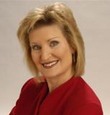Transform fear from a formidable foe into a powerful
force that can propel you to excellence.
After you’ve been asked to make a presentation at work, you do the necessary thinking, researching, outlining, and rehearsing until you feel sufficiently prepared. But when you get up before the group to confidently state your case, you freeze in fear—paralyzed from the tongue down.
Business is one series of important “presentations” after another. Whether a formal speech, a proposal to the board of directors, or a conversation with a potential client, these are all ways we put ourselves and our ideas on display. And if we’re not “on,” we’re off—and often out.
Sometimes the fears are rational, sometimes they’re not. But you’re in good company if you experience them; such seasoned “presenters” as Willard Scott and David Letterman admit to feeling fear before a performance. In fact, when you hear someone claim not to be nervous before giving a presentation, you’re probably in for a boring talk. Presenters who lack a certain amount of anxiety don’t have enough adrenaline flow to push them to peak performance.
Don’t let fear push you to mediocrity. Don’t settle for being an “average” presenter, one who is scared into conformity. Don’t risk losing your audience with a boringly straight-laced performance—one that’s not too passionate, not too loud, not too flashy, not too funny, not too controversial, not too emotional, not too formal, not too informal...not too anything. Instead of conforming to the mediocre, be yourself.
But strive to be better than “natural.” We are ourselves but in different ways on different occasions. We dress, talk, and act one way with our kids at McDonald’s on Saturday and quite a different way in presenting a new product idea to the CEO. Be your best self.
Is it really possible for a shy person to be an excellent presenter? After all, you can’t change an individual’s personality with a snap of your fingers. Yes, it is possible. Stutterers often have no trouble singing. The disabled person may have no trouble swimming. The foreign-born can speak fluent English.
Anyone—no matter how shy—can blossom as a speaker by investing practice time and applying proven techniques.
Let fear propel you to peak performance. Fear is a learned response. A two-year-old doesn’t fear walking into the street until someone yanks her back, warning her of the danger. We learn that same fear when it comes to formal presentations. And if fear is learned, it can be unlearned—or at least controlled.
The secret to overcoming fear is learning to perform despite the nervousness—actually making your jitters work for you. Imagine the tension and extra adrenaline pumping through you as catalysts to a great performance—giving you the winning edge needed for excellence.
In attempting to control nervousness, remind yourself never to give in. Maybe you’ve found yourself in a situation where you knew if fear overtook you, you’d be in trouble. You took a deep breath and refused to let your nerves get the best of you. Show the same resolve when giving a presentation—refuse to take that first step toward letting yourself fall apart. Instead of thinking about how you might embarrass yourself, concentrate on your subject. Recall and rehearse your key points rather than your key obstacles.
Put it in perspective. Another trick for calming yourself is to consider the unnerving experience in light of eternity. What’s the worst thing that can happen? What will it all matter a year from now? In fact, if you goof, who will even remember it tomorrow? In the big scheme of things, your presentation is fairly miniscule.
Translate your irrational fears into a good laugh with observations like this one: “I can see it now in USA TODAY—‘Jenny Johnson Shows Crooked Flowchart Because of a Defective Laptop Projection System. She was also wearing a navy blue suit that wrinkled badly on the plane and ...’” You get the picture. Learn to put things in perspective.
Exercise to diffuse nervous fidgeting. Take a few deep breaths and exhale slowly. Let all the muscles in your body go limp, then tense them, then let them go limp again. Clench your fists, then relax them. Select an object and stare at it for a long while, concentrating on relaxing. Take a brisk walk or jog before arriving at the event.
The most effective speakers are not those who never experience stage fright. They’re the ones who overcome fear’s potentially paralyzing effect and transform it into peak performance.
Dianna Booher is the author of more than 40 books including her latest, The Voice of Authority: 10 Communication Strategies Every Leader Needs to Know (McGraw-Hill, June 2007), Communicate with Confidence, Speak with Confidence, and E-Writing. She is the CEO of Booher Consultants, a communication training firm offering programs in oral presentations, writing, and interpersonal skills. Successful Meetings Magazine has named her to its list of "21 Top Speakers for the 21st Century." http://www.booher.com or 800-342-6621.

Post new comment
Please Register or Login to post new comment.